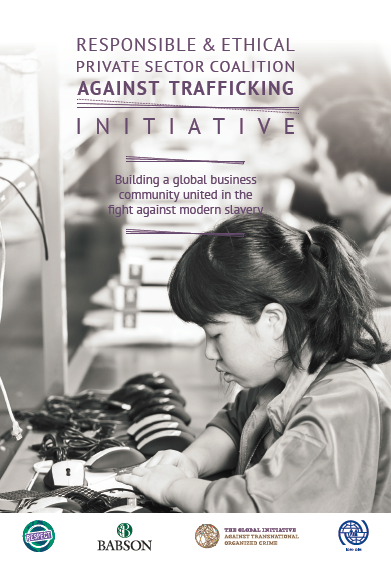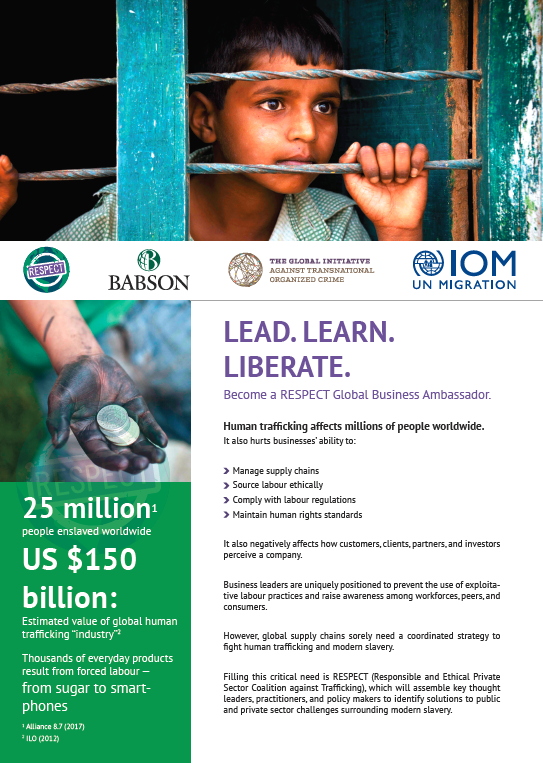When:
January 12, 2018 all-day
2018-01-12T00:00:00+01:00
2018-01-13T00:00:00+01:00
Human trafficking is a form of modern slavery. Although strictly speaking, slavery is no longer legal in most countries in the world, many slavery-like practices such as confiscating personal identity cards and travel documents, forcing and imprisoning people against their will, sadly still exist.
As a global phenomenon, human trafficking is a gross violation of human rights and human dignity, which involves the use of force, fraud or coercion to transport, recruit, harbour and force people to provide labour or services against their will.
The private sector, knowingly or unwittingly, can get entangled in these global trafficking networks, becoming either the “facilitators” or “targets” of human trafficking. However, businesses are also uniquely positioned to prevent the use of exploitative labour practices:
“The private sector has so much to offer in terms of resources, knowledge and influence to combat human trafficking.. Businesses have a moral and legal responsibility to ensure that all aspects of their operations are “traffic-free” – from employees, to suppliers, to partners” – Yury Fedotov, UNODC Executive Director
Recognising the need to fight against this global threat, the Responsible and Ethical Private Sector Coalition against Trafficking Initiative (RESPECT), partnered with the Global Initiative against Transnational Organised Crime, Babson College’s Initiative on Human Trafficking and Modern Slavery and the International Organization for Migration (IOM), have come into existence, aiming to coordinate a global private sector coalition to combat human trafficking.
RESPECT is launched on January 12, 2018
See RESPECT Launch on Babson College’s page here
If you want to join our collective efforts, simply come check out our resource portal, which aims to help you:
- learn more about human trafficking and how it is related to other organised crimes; and
- realise the simple steps of preventing it – as a private sector/ civil society actor or a consumer.
More information about the RESPECT initiative can be found below 
Also stay tune to our first webinar of the Webinar Series 2018 which will take place on Thursday, January 18! More information and register here!
Please contact us should you have inquiries or like to learn more about the RESPECT initiative at secretariat@respect.international.



